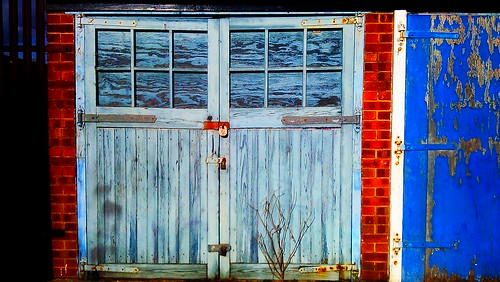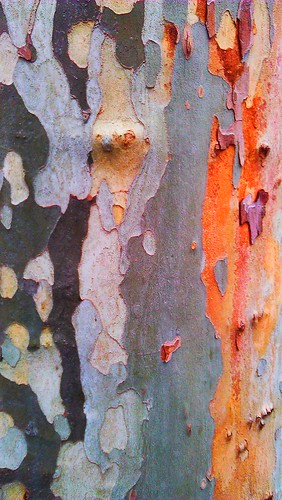I've been meaning to do something with this lovely John Sebastian song for a long time. A couple of quiet hours on my own last Saturday yielded this, and I'm very pleased with it.
Tuesday, 28 February 2012
Tex and Jim
My mother's side of the family hails from the little East Texas town of Carthage. She was raised there, and coincidentally, my dad lived there as a young boy when his dad worked in the Champlin Oil facility on the outskirts, before moving away to South Texas and then Fort Worth. As a young man, he returned one summer to work in the same Champlin camp, met my mother, and the rest is history.
View Larger Map
Carthage was home to two country music legends, to both of whom my family had some connections: Tex Ritter and Jim Reeves.
Tex Ritter came from Murvaul, just down the road, and his brother married one of my great grandmother's sisters. In the early '70s, when we were living in New Haven, Connecticut, my father won a contest held by Country Music magazine, the prize for which was an all-expenses-paid trip to Nashville, including a backstage pass at the Grand Ole Opry (then still at the historic Ryman Auditorium) and the chance to hang out with Tex Ritter. The fact that the winner of the prize was a distant relative must have made for a very interesting meeting. I remember my dad being very excited about it for a long time after. He was full of praise for Tex Ritter, who was something of an intellectual and apparently made a lot of prescient statements about the future of the music industry.
Jim Reeves was from Galloway, and as a small boy during the Great Depression, he was a pupil at the school where my paternal grandfather, U.B. Goolsby, taught. (Papa Goolsby has made two previous appearances in these pages.)
Times have never been easy in this part of Texas, but they were particularly tough then, and my sweet grandpa, who had known poverty himself as a child, was frustrated enough at the lack of diversions for the dirt-poor children in his charge that he dipped into his own pocket and bought some baseball kit so they would have some source of exercise and entertainment. Jim Reeves took to it like a duck to water, and probably would have had an epic career as a pro if injury had not prematurely ended it. Lucky for him that he also had a winning way, good looks and a voice to fall back on.
View Larger Map
Carthage was home to two country music legends, to both of whom my family had some connections: Tex Ritter and Jim Reeves.
Tex Ritter came from Murvaul, just down the road, and his brother married one of my great grandmother's sisters. In the early '70s, when we were living in New Haven, Connecticut, my father won a contest held by Country Music magazine, the prize for which was an all-expenses-paid trip to Nashville, including a backstage pass at the Grand Ole Opry (then still at the historic Ryman Auditorium) and the chance to hang out with Tex Ritter. The fact that the winner of the prize was a distant relative must have made for a very interesting meeting. I remember my dad being very excited about it for a long time after. He was full of praise for Tex Ritter, who was something of an intellectual and apparently made a lot of prescient statements about the future of the music industry.
Jim Reeves was from Galloway, and as a small boy during the Great Depression, he was a pupil at the school where my paternal grandfather, U.B. Goolsby, taught. (Papa Goolsby has made two previous appearances in these pages.)
Times have never been easy in this part of Texas, but they were particularly tough then, and my sweet grandpa, who had known poverty himself as a child, was frustrated enough at the lack of diversions for the dirt-poor children in his charge that he dipped into his own pocket and bought some baseball kit so they would have some source of exercise and entertainment. Jim Reeves took to it like a duck to water, and probably would have had an epic career as a pro if injury had not prematurely ended it. Lucky for him that he also had a winning way, good looks and a voice to fall back on.
The Man Machine
In sixth grade, 1974 at MSU Campus School (where I saw Al Jackson many times, without having any idea who he was), our much-harassed music teacher (whose name I can't remember) would let kids bring a record in to play for the class. This didn't happen much, and when it did, it resulted in some predictably dire selections. However, one week, a boy named Robert Grey brought in "Autobahn" by Kraftwerk. I remember a lot of groaning from the class, but I thought it was really cool, and I'd never heard anything remotely like it. It's hard to imagine a world without Kraftwerk, and I guess it's easy to overlook just how profound their influence has been. This two-part documentary brings it all home.
Part 1
Part 2
Part 1
Part 2
Friday, 24 February 2012
Thursday, 23 February 2012
Love's Gonna Live Here
I've been thinking lately about how the sense of a song can be turned upside down without resorting to irony or gags, and I think this version does that pretty well. The original sounds joyously hopeful.
Tuesday, 14 February 2012
Le Blues De Memphis
Spike Priggen, who posted this to his wonderful Bedazzled blog nearly a month ago, apparently grew up in the same neighborhood I went to school in when I lived in New Haven, Connecticut in the early '70's, though I think he might be a bit younger than me. Anyway, what a find we have here: a Brook Benton session in Muscle Shoals, Booker T. & The MG's working out "Time is Tight" in the studio, and, tastiest of all, Isaac Hayes blowing baritone, running an expanded version of the Memphis Horns through a horn arrangement on The Emotions' hit "So I Can Love You." This is unbelievably sweet.
Look Like to Me It's Some Masonic Shit
"Anytime you want to know something, you need to ask the people that got it. Then you get the right understanding."
As a young man, I remember hearing all sorts of hysterical urban legends about "Voodoo Village," which always struck me as highly unlikely, maybe even absurd. However, I never made the effort to find out for myself what it was all about, sadly. Revealed here, by the extremely talented Eric Wilson, is a work of devotional artistic beauty, universally misunderstood.
I guess if there's any levity to be found in this story of bigotry and ignorant suspicion, it's the fact that the place inspired the name for one of Memphis' most accomplished absurdist musical pastiche acts: The Voodoo Village People, fronted by the legendary Mike Cupp/Mick Cock.
As a young man, I remember hearing all sorts of hysterical urban legends about "Voodoo Village," which always struck me as highly unlikely, maybe even absurd. However, I never made the effort to find out for myself what it was all about, sadly. Revealed here, by the extremely talented Eric Wilson, is a work of devotional artistic beauty, universally misunderstood.
Voodoo Village - The Temple from eric wilson on Vimeo.
I guess if there's any levity to be found in this story of bigotry and ignorant suspicion, it's the fact that the place inspired the name for one of Memphis' most accomplished absurdist musical pastiche acts: The Voodoo Village People, fronted by the legendary Mike Cupp/Mick Cock.
Swimming to Zambodia
For a number of months in 1987 - 88, my band mates Linda Heck and John McClure lived across the hall from each other upstairs in this building, near the southwest corner of Madison and Belvedere, in Midtown, Memphis. Diagonally to the east were legendary Midtown watering holes Zinnie's and The Lamplighter, and one block to the west was the "world-famous" Antenna Club, where we left a significant part of our youth dissolved in the cigarette smoke, spilled beer, almost impossible darkness and (sometimes) beautiful noise of the place. The downstairs was a dentist's office or something of the sort, ensuring that there was no one around to disturb after 5:00 PM, or at the weekend.
In short, it was the ideal location for our rehearsal and recording activities, and many of the best four-track recordings we made (I have provisionally named a collection of these "Lonesome Train on a Lonesome Four-track") were done here. A couple of tracks even include the staircase of the building, being played percussively by the inimitable Jones Rutledge. The last time I was in Memphis, I noticed as I drove by that it seems to have been converted into a boarding house of some sort.
View Larger Map
The landlord of this then-quasi-respectable abode was one Prince Mongo, a.k.a. Robert Hodges. I only came across him in person a couple of times, when he was stopping by to collect the rent. He was considerably less eccentric than portrayed in this segment from "Real People" in 1981, but he was friendly enough and did refer to everyone as "spirit," never once using anyone's actual name.
My family moved to Memphis in 1974, and given that I spent my early years there either in the rather anonymous East Memphis suburbs, or in the ghetto (where I went to junior high), it took me a few years to stumble upon clues as to just what an unusual place Memphis was. Prince Mongo provided one of the first of these. It must have been 1977 or so, and I was at home, watching the local evening news as my mother prepared dinner. Just before the commercial break, the program cut to a teaser for the next item, a live segment from outside a home in Midtown, the very respectable Central Gardens, to be precise. As the reporter blathered on in the foreground, in the background, a shirtless figure in goggles, sleeveless fur jacket, and tribal-looking jewellery brandished a staff of some sort amidst a front yard full of random junk, baying skyward.
Unsurprisingly, I was eager to see what followed. The live segment featured more of the same in the background as the reporter attempted to relate the details of the dispute between Mongo and his neighbors. Meanwhile, Mongo climbed into a casket and was lowered into a grave dug in his front yard. I was amazed, and started to question just what sort of place my parents had brought me to, but in a good way.
Beyond being landlord to (as yet) unsung legends of Memphis music, Mongo was by turns a restaurateur (if one could count Prince Mongo's Pizza on Highland as a restaurant - the pizza was okay by the standards of the time, and it had staying power), club owner (Mongo's Planet on Front Street was a decent effort for Memphis in the early '80's as interplanetary freak-out decor, though the acoustics sucked and the bands had to play upstairs in a mezzanine space - meaning the only glimpse they caught of the audience was people coming in, or just as likely, going out, the front door. The Castle/Ashlar Hall was altogether classier, but felt a bit too Florida for my tastes.), and perennial mayoral candidate. The Memphis political scene has always been sufficiently surreal as to preclude anyone making much of a mark in the arena of absurdity, but Mongo has scored a few victories as a mocking presence, on one occasion I remember promising a revival of public executions in Court Square if elected. Genius.
As the clip here suggests, Mongo has allegedly long benefited from some external source of financial support, and I heard various versions of the back story over the years. The most common version was that he was the scion of a wealthy family, who left him money in the form of a trust, which could only be tapped if he were deemed to be mentally ill. I have no idea as to the veracity of this account, and it doesn't matter. His gift to Memphis, in my view, has been satire and entertainment - my favorite moment coming in the early '80's (if my failing memory is correct), when he claimed to be tired of this life on Earth and announced his permanent return to his home planet of Zambodia (many people told me over the years that Zambodia was a code word for his alternate residences in Florida). On a Saturday, he staged a farewell event, boarding a hot air balloon (Wizard of Oz-style) at the Mid-South Fairgrounds to the home planet, but unfortunately ended up executing an emergency landing on the campus of Southwestern University, about two miles northwest of his point of departure. He remains stranded in Memphis to this day.
In short, it was the ideal location for our rehearsal and recording activities, and many of the best four-track recordings we made (I have provisionally named a collection of these "Lonesome Train on a Lonesome Four-track") were done here. A couple of tracks even include the staircase of the building, being played percussively by the inimitable Jones Rutledge. The last time I was in Memphis, I noticed as I drove by that it seems to have been converted into a boarding house of some sort.
View Larger Map
The landlord of this then-quasi-respectable abode was one Prince Mongo, a.k.a. Robert Hodges. I only came across him in person a couple of times, when he was stopping by to collect the rent. He was considerably less eccentric than portrayed in this segment from "Real People" in 1981, but he was friendly enough and did refer to everyone as "spirit," never once using anyone's actual name.
My family moved to Memphis in 1974, and given that I spent my early years there either in the rather anonymous East Memphis suburbs, or in the ghetto (where I went to junior high), it took me a few years to stumble upon clues as to just what an unusual place Memphis was. Prince Mongo provided one of the first of these. It must have been 1977 or so, and I was at home, watching the local evening news as my mother prepared dinner. Just before the commercial break, the program cut to a teaser for the next item, a live segment from outside a home in Midtown, the very respectable Central Gardens, to be precise. As the reporter blathered on in the foreground, in the background, a shirtless figure in goggles, sleeveless fur jacket, and tribal-looking jewellery brandished a staff of some sort amidst a front yard full of random junk, baying skyward.
Unsurprisingly, I was eager to see what followed. The live segment featured more of the same in the background as the reporter attempted to relate the details of the dispute between Mongo and his neighbors. Meanwhile, Mongo climbed into a casket and was lowered into a grave dug in his front yard. I was amazed, and started to question just what sort of place my parents had brought me to, but in a good way.
Beyond being landlord to (as yet) unsung legends of Memphis music, Mongo was by turns a restaurateur (if one could count Prince Mongo's Pizza on Highland as a restaurant - the pizza was okay by the standards of the time, and it had staying power), club owner (Mongo's Planet on Front Street was a decent effort for Memphis in the early '80's as interplanetary freak-out decor, though the acoustics sucked and the bands had to play upstairs in a mezzanine space - meaning the only glimpse they caught of the audience was people coming in, or just as likely, going out, the front door. The Castle/Ashlar Hall was altogether classier, but felt a bit too Florida for my tastes.), and perennial mayoral candidate. The Memphis political scene has always been sufficiently surreal as to preclude anyone making much of a mark in the arena of absurdity, but Mongo has scored a few victories as a mocking presence, on one occasion I remember promising a revival of public executions in Court Square if elected. Genius.
As the clip here suggests, Mongo has allegedly long benefited from some external source of financial support, and I heard various versions of the back story over the years. The most common version was that he was the scion of a wealthy family, who left him money in the form of a trust, which could only be tapped if he were deemed to be mentally ill. I have no idea as to the veracity of this account, and it doesn't matter. His gift to Memphis, in my view, has been satire and entertainment - my favorite moment coming in the early '80's (if my failing memory is correct), when he claimed to be tired of this life on Earth and announced his permanent return to his home planet of Zambodia (many people told me over the years that Zambodia was a code word for his alternate residences in Florida). On a Saturday, he staged a farewell event, boarding a hot air balloon (Wizard of Oz-style) at the Mid-South Fairgrounds to the home planet, but unfortunately ended up executing an emergency landing on the campus of Southwestern University, about two miles northwest of his point of departure. He remains stranded in Memphis to this day.
Thursday, 9 February 2012
Evil in Residence
Back to musical pastiche. I'm not sure what possessed me to do this, apart from the fact that London has been having a streak of cold weather and I live in a very poorly insulated flat. A few nights ago, I awoke in the wee hours feeling very cold and the couplets here came into my semi-conscious mind. I remember thinking, "That sounds like a Residents song," filed the idea, and went back to sleep. Returning from work one evening a couple of days later, I did this in about 30 minutes. I like it, but it's nowhere near capturing the real genius of the band, though it has prompted me to go back and listen again to things I haven't listened to in years. In particular, I have been tuning into the Commercial Album, which is true genius. I don't know if it was their intent to test perceptions of time, but I find that in listening to these tracks of almost identical length, I perceive their lengths to be much different, depending on the extent to which they draw me in.
Anyway, enough of my poor attempts at pastiche homage, here's a great selection of the real thing, from April Fool's 1980.
Unreleased Grundies tracks
Back when I was a boy, "grundy" was a term used by some of my friends to describe a "wedgie" executed in the front (also known as a "melvin") - in other words, a common playground antic where an unfortunate victim had his underpants grabbed and pulled violently upwards. Presumably the "grund" was a bit of onomatopoeia employed to describe the sensation of pre-pubescent genitals being compressed or ground into a tight space. In any event, it's a pretty unpleasant concept and word.
I never learned how The Grundies came by their name. The band existed before I joined it, and for whatever reason, I never thought to ask about the origin of the name.
Recently I've noticed a few visitors to this blog (you notice these things when you have as little traffic as this one does) from well outside the Memphis area arriving here via a Google search for "The Grundies," which I find curious, but also kind of encouraging. The idea that a virtually unknown band could have a residual "half-life" ten times the length of its actual existence is a nice thought, and gives me some hope that there will always be freaks out there who refuse to be press-ganged into the latest corporate schlock - always in search of the unloved, the unknown, and the forgotten.
It occurred to me that my original post discussed some recordings in great detail, but that I never went back to that post to insert the actual audio files once I had successfully ripped them from cassette to mp3. Subsequently, I realised I had completely forgotten about a post in the interim, in which I pointed to these rips on MySpace, so all the commentary and track listings are already done. Nevertheless, I will repeat them here.
So here they are. I don't know if the master tapes still exist in the wake of the tragic fire at Easley-McCain Recording, so this may be as good as it ever gets. The cassette in question is a dub of the mixes from a session of seven songs nearly 20 years ago, from which the ultra-rare single "You Look Good"/"San Antonio" emerged. I have made no alteration to EQ and attempted no noise reduction. It is what it is. All performances are live with no overdubs, apart from the a cappella canon at the beginning of "Lawman," where we manage to start out in the wrong key.
Lawman (Eddie Bond, arranged by The Grundies)
Trey Harrison - guitar, vocals
Jeff Green - bass, vocals
Bob Fordyce - drums, vocals
James Enck - tenor sax, vocals
(I like the way this one very nearly collapses heading into the first chorus.)
I Found My Love in Memphis (George Clappes, arranged by The Grundies)
Trey Harrison - vocals
Jeff Green - bass
Bob Fordyce - drums
James Enck - guitar
Cowboy Song (Red Harrison, The Grundies)
Trey Harrison - guitar, vocals
Jeff Green - guitar
Bob Fordyce - drums
James Enck - bass
(This song was actually written by Trey's then-toddler son, Red)
Fire in the Driveway (bolero version) (The Grundies)
Trey Harrison - guitar, vocals
Jeff Green - bass, vocals
Bob Fordyce - drums
James Enck - guitar
Buddy Up (The Grundies)
Trey Harrison - guitar, vocals
Jeff Green - bass
Bob Fordyce - drums
James Enck - tenor sax, guitar
Trey Harrison - guitar, vocals
Jeff Green - bass, vocals
Bob Fordyce - drums, vocals
James Enck - tenor sax, vocals
(I like the way this one very nearly collapses heading into the first chorus.)
I Found My Love in Memphis (George Clappes, arranged by The Grundies)
Trey Harrison - vocals
Jeff Green - bass
Bob Fordyce - drums
James Enck - guitar
Cowboy Song (Red Harrison, The Grundies)
Trey Harrison - guitar, vocals
Jeff Green - guitar
Bob Fordyce - drums
James Enck - bass
(This song was actually written by Trey's then-toddler son, Red)
Fire in the Driveway (bolero version) (The Grundies)
Trey Harrison - guitar, vocals
Jeff Green - bass, vocals
Bob Fordyce - drums
James Enck - guitar
Buddy Up (The Grundies)
Trey Harrison - guitar, vocals
Jeff Green - bass
Bob Fordyce - drums
James Enck - tenor sax, guitar
(This recording reflects the way we used to play this live - two instrumental fragments up front, followed by "Buddy Up," a song we wrote in Jeff's living room in about 20 minutes, as I recall.)
Wednesday, 8 February 2012
Wished I Was a Giant
Huge amps in a small room, turned way up, the way it should be.
"Is there any way the vocal can be a bit louder, or is that about it?"
"Uh, no."
"It's maxed?"
"Completely."
Truckstop of Your Love
I have a somewhat unfortunate love of musical pastiche, though admittedly, at its best (The Turtles Present the Battle of the Bands, The Rutles, The Dukes of Stratosphear, occasionally even Weird Al) it can be very good indeed. I've toyed with a number of pastiches over the years, with mixed success. One, which never came to fruition, was an adaptation of Billy Idol's execrable "White Wedding" under the title "Watch Wrestling," which came about as a result of some idle banter with my old band mate Dan Hopper about 30 years ago. "Hey little sister, knee drop! It's a nice day to watch wrestling, it's a nice day to stomp your brain."
This is something that I came up with in 1987 or so, and recorded a crude version of, which has been forever lost. The other day I was thinking about it, and suddenly the lyrics came back to me, so I decided to remake it. It's all done on GarageBand for iPad, with guitar and Yamaha keyboard (bass and drums). Apologies to Eric, Jack and Ginger.
Monday, 6 February 2012
Conversation with Collins
I first heard this classic on the legendary Dick "Kane" Cole's show on WLOK back in Memphis, and it always makes me smile. Seeing the video here certainly de-mystifies things a bit...
Subscribe to:
Comments (Atom)







